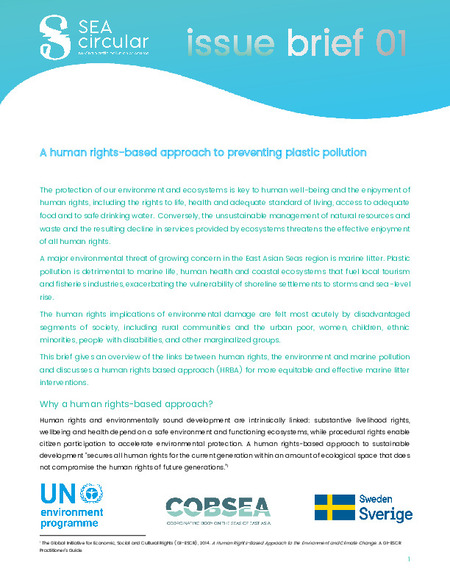| dc.contributor | Asia & Pacific Office | en_US |
| dc.contributor.author | United Nations Environment Programme | en_US |
| dc.date.accessioned | 2022-08-29T12:04:38Z | |
| dc.date.available | 2022-08-29T12:04:38Z | |
| dc.date.issued | 2019 | |
| dc.identifier.uri | https://wedocs.unep.org/20.500.11822/40520 | |
| dc.description | The human rights implications of environmental damage are felt most acutely by disadvantaged segments of society, including rural communities and the urban poor, women, children, ethnic minorities, people with disabilities, and other marginalized groups.
This brief gives an overview of the links between human rights, the environment and marine pollution and discusses a human rights based approach (HRBA) for more equitable and effective marine litter interventions. | en_US |
| dc.description.uri | https://www.sea-circular.org/ | en_US |
| dc.format | Text | en_US |
| dc.language | English | en_US |
| dc.relation.ispartof | SEA Circular Project | en_US |
| dc.rights | Public | en_US |
| dc.subject | marine pollution | en_US |
| dc.subject | pollution control | en_US |
| dc.subject | human rights | en_US |
| dc.subject | plastic waste | en_US |
| dc.title | A Human Rights-Based Approach to Preventing Plastic Pollution - SEA Circular Issue Brief 01 | en_US |
| wd.identifier.sdg | SDG 3 - Good Health and Well-Being | en_US |
| wd.identifier.sdg | SDG 14 - Life below Water | en_US |


